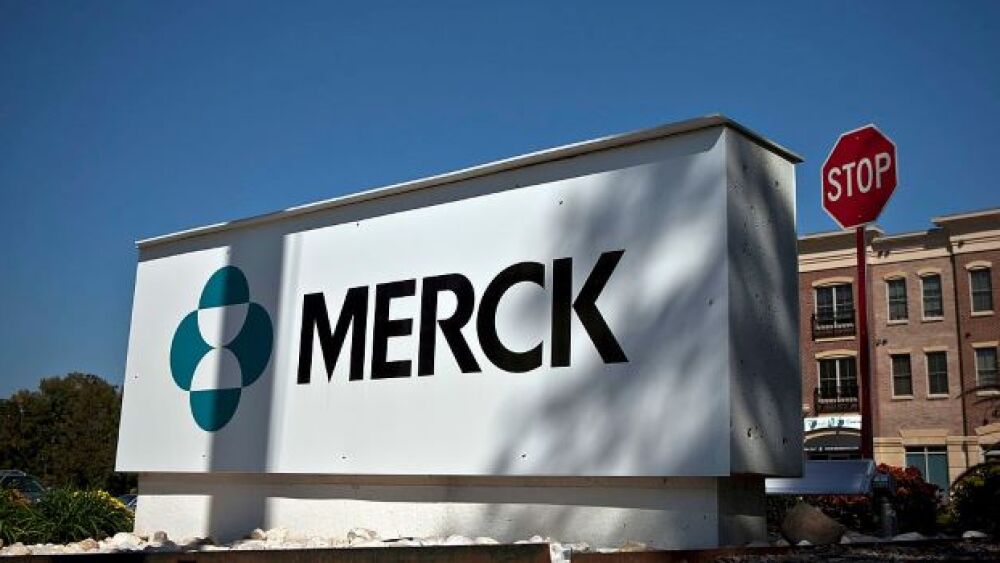The study of Molnupiravir will assess 1,300 adult participants 18 and over who cohabitate with someone who has tested positive for the coronavirus and is symptomatic.
Merck & Co./Courtesy of Kena Betancur, Getty Images
The August uptick in first vaccinations is a tacit acknowledgment of many Americans that COVID-19 is settling in to become endemic. As such, there is a flourishing market for therapeutics to keep case numbers as low as possible, and on Wednesday, Merck and Ridgeback Biotherapeutics announced that they had entered Phase III clinical trials with one such drug.
The study of Molnupiravir, an oral antiviral therapeutics, will assess 1,300 adult participants 18 and over who cohabitate with someone who has tested positive for the coronavirus and is symptomatic. Endpoints for success will include the percentage of participants who contract COVID-19 through day 14, the number who experience an adverse event and the percentage of those who need to discontinue the study due to an adverse event.
“As the pandemic continues to evolve and surges are being reported in many places around the world, it is important that we investigate new ways to protect individuals exposed to the virus from becoming infected with symptomatic disease,” said Dr. Nicholas Kartsonis, senior vice president, vaccines and infectious diseases, clinical research at Merck Research Laboratories. “If successful, molnupiravir could provide an important additional option towards reducing the burden of COVID-19 on our communities.”
The international study, aptly named “MOVe-AHEAD” will draw participants from countries on five continents and pit a treatment group who receive an 800mg dose of molnupiravir every 12 hours for five days against a placebo cohort.
In January, Merck discontinued the development of its two COVID-19 vaccine candidates and pivoted its pandemic strategy to a therapeutic one with MK-4482 (molnupiravir) and MK-7110 (formerly CD24Fc).
Molnupiravir is Merck’s last candidate standing after it halted the development of MK-7110, acquired through its December acquisition of OncoImmune. The MK-7110 program was abandoned in April due to technical, clinical and regulatory uncertainties and the already saturated market for therapeutics for hospitalized COVID-19 patients.
At the time, Dr. Roy Barnes, SVP, head of global clinical development and chief medical officer at Merck Research Laboratories, said that molnupiravir represented a promising potential new approach as an oral medicine for outpatient use.
The molnupiravir program has experienced its own pivot. In April, Merck and Ridgeback announced that the phase II/III MOVe-IN study of the drug in hospitalized patients would not proceed after a planned interim analysis of phase II data indicated that molnupiravir was unlikely to demonstrate a clinical benefit in these individuals.
The MOVe-AHEAD study will run simultaneously with the MOVe-OUT trial, a global phase III study assessing non-hospitalized adult patients with mild-to-moderate COVID-19 and at least one risk factor associated with poor disease outcomes. Safety and efficacy results, which the companies expect at some point during the second half of 2021, will also inform molnupiravir’s potential value as a therapeutic tool.
“We are pleased that molnupiravir continues to show promise as a potential treatment for non-hospitalized patients with COVID-19,” said Ridgeback Chief Executive Officer Wendy Holman in a previous statement. “Data from Ridgeback Bio’s EIDD-2801-2003 study (MK-4482-006) coupled with Merck’s MK-4482-002 study provide compelling evidence for the antiviral activity of molnupiravir.”






